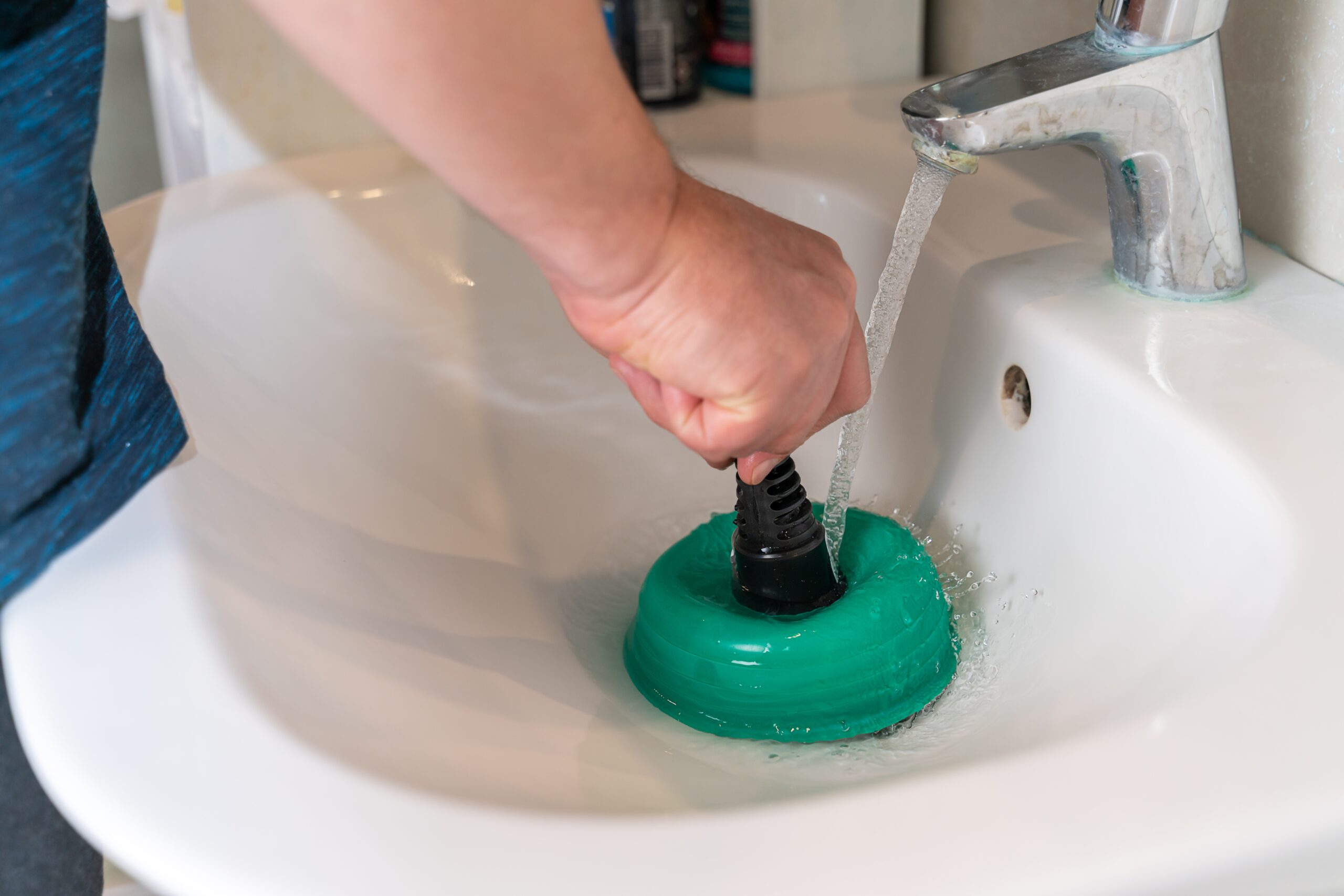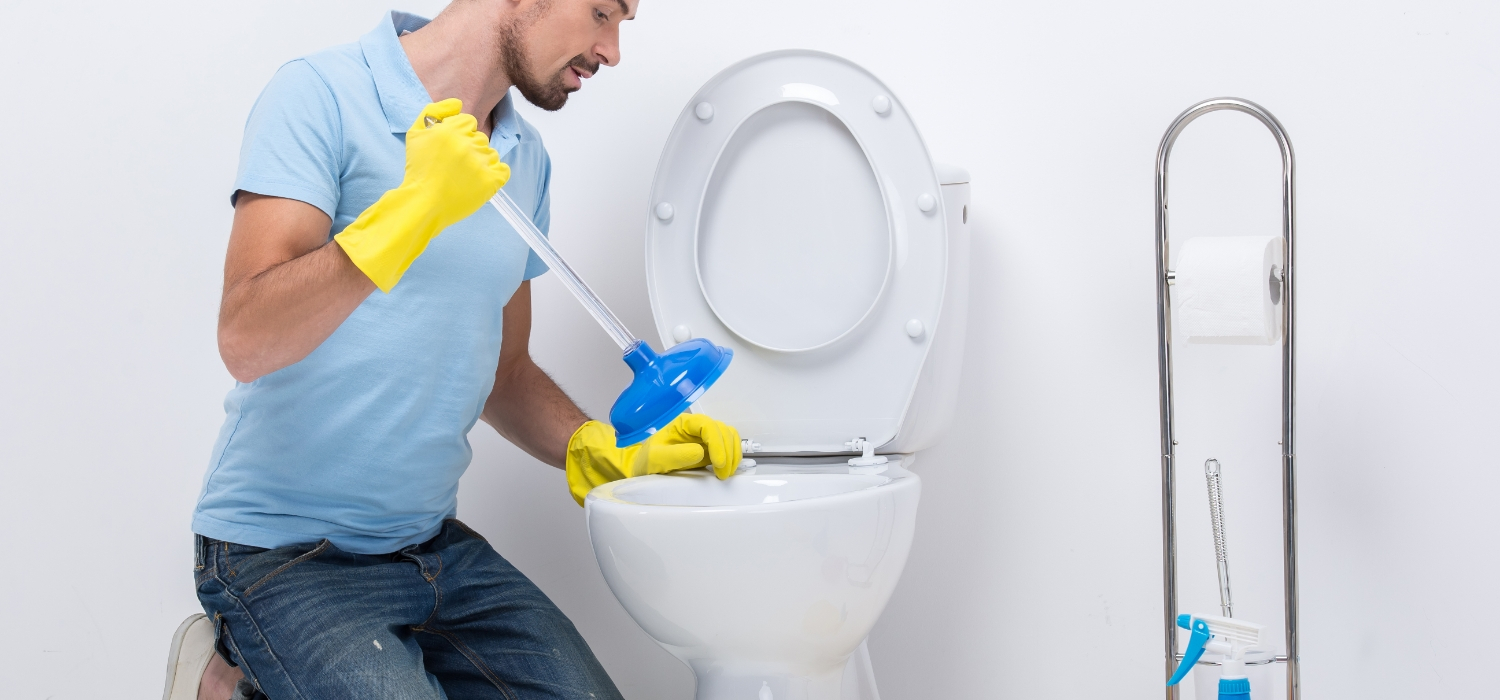The publisher is making a number of good points relating to How to handle a clogged drain in your home as a whole in this article down below.

Introduction
Handling a blocked drainpipe can be a frustrating experience, interfering with day-to-day activities and possibly triggering damage to your property. Nevertheless, before reaching out to plumbing professionals, there are actions you can require to deal with the concern on your own. In this guide, we'll explore do it yourself options and safety nets to take on an obstructed drain successfully.
Recognizing the Issue
The primary step in attending to a blocked drainpipe is acknowledging the signs. Slow water drainage, gurgling noises, foul odors emanating from drains pipes, or water support up are common signs of a blocked drain. Determining these signs early can help prevent additionally problems.
Typical Root Causes Of Obstructed Drains
Comprehending the aspects that add to drain pipes clogs is vital for efficient resolution. Typical culprits include hair, soap residue, grease, food debris, and foreign things like sanitary items or paper towels. Tree origins getting into underground pipelines can likewise trigger significant blockages.
Do it yourself Solutions
For small blockages, numerous DIY solutions can be efficient. Pouring boiling thin down the drainpipe can aid liquify oil and debris. Baking soda and vinegar or a mix of salt and cooking soft drink can work as all-natural cleansers. Using a bettor or plumbing snake to remove blockages is an additional choice.
Devices and Tools
Having the right tools available can make do it yourself drainpipe cleaning up extra effective. A plunger is a flexible device for getting rid of blockages in sinks, toilets, and showers. A pipes serpent or auger can get to much deeper blockages, while drainpipe cleaning chemicals can be utilized carefully for persistent clogs.
Safety nets
To prevent future clogs, embracing safety nets is crucial. Set up drain guards or filters to capture hair and particles before they get in the pipes. Frequently flush drains pipes with hot water to liquify grease accumulation, and stay clear of throwing away grease or strong waste down the tubes.
When to Call a Specialist
While DIY options can settle minor blockages, specific indicators show the requirement for specialist support. Consistent obstructions, foul odors regardless of cleansing initiatives, or numerous drains pipes supporting simultaneously are red flags that require skilled intervention.
Choosing the Right Plumbing Solution
When picking a pipes service, think about elements such as experience, licensing, and customer evaluations. Select a trustworthy plumbing professional with a record of high quality workmanship and clear prices practices.
Cost Factors to consider
The cost of specialist drain cleaning services can vary depending on the extent of the clog and the plumbing's rates. Demand quotes from multiple carriers and ask about any added fees to make certain openness and stay clear of shocks.
Security Measures
When trying DIY drainpipe cleansing, prioritize security. Put on protective handwear covers and eyewear to prevent contact with hazardous chemicals or germs. Never ever mix various drain cleansing items, as this can generate harmful fumes.
Situation Studies
Real-life examples show the efficiency of DIY options and the value of timely professional treatment in settling drainpipe obstructions.
Verdict
By complying with the pointers described in this guide, you can effectively tackle blocked drains and avoid future pipes issues. Whether going with DIY services or looking for professional help, timely action is vital to preserving a healthy plumbing system and protecting the honesty of your home.
9 Ways You Can Clear a Blocked Drain
Blocked Drains from Hair
We’ve seen it all before, a build-up of hair that’s leads to a clogged drain. Most times it’s a moderately easy task to simply ‘remove the hair’, but if it’s not cleared up straight away – it can cause a lot of issues down the line.
Hair falling off the body in the shower or while getting ready over the sink and in the bathroom is one of the most common causes of blocked sinks and drains. But whilst it’s a common problem for many homeowners, there are ways you can fix your drain and put a long-term solution in place.
How to Fix Blocked Drains from Hair?
What to do: Small amounts of hair can be removed by pulling it out with gloved hands to avoid it getting worse. Drain cleaning devices such as drain spiders can also be purchased to help remove the hair from the drain. However, it’s important to be careful as some devices and cheap hair removal chemicals can make the problem worse.
It’s important to remove the hair before it gets clogged into the entry of the drain pipes. If you’re unable to reach the hair or the devices aren’t working as intended, it’s time to speak to a blocked drain specialist.
Blocked Drains from Plants and Dirt
Natural debris like trees, shrubs, dirt and leaves can be an issue for water drains, especially after spring and autumn. Your regular garden and drain maintenance that keeps the outdoor area looking great is also essential to the productivity of your water drains and pipes.
Leaves aren’t the only culprit, however – tree roots are notorious for growing underneath in search of water and as a result, will usually head straight to your drains.
How to Fix Blocked Drains from Plants and Dirt?
What to do: To prevent plants, leaves and dirt from blocking the drains, keep the outdoor area clear of fallen leaves and debris. If this mess is left long enough, it will cause your drains to become severely blocked.
Keep your trees well-watered so they are less drawn to the drains as a source of moisture and stay away from clogging plants where possible; like willow trees, oak trees, magnolias, boxwood shrubs, palm trees and gum trees.
While ensuring your yard is free from leaves and dirt is a great way to prevent build-up, sometimes the real issues lay under the surface. Tree roots can crack your drain pipes beneath your home – causing severe blockages and leaks. Specialist drain cleaning equipment can be used to clear the blockage and pipe relining technology can provide a long-term structural repair.
Blocked Drains from Grease Build-up
Like hair in the bathroom, grease and fat will build-up in the kitchen sink over time. These fatty substances are a very common cause of blocked drains and pipes and can be a nuisance to clear out.
Any grease waste or fatty substance that is washed down the sink will stick to the inside of the pipes and eventually build up to a point no liquid can pass through. It’s important to be aware that this grease doesn’t leave the pipes as easily as you would expect.
How to Fix Blocked Drains from Grease Build-up?
What to do: Avoid washing these fatty ingredients down the affected drain as much as possible. Grease that’s washed down the drain will cool and harden in the pipes.
A smart way to prevent this build-up of grease is to start collecting all glass jars that you purchase at the supermarket. Then, instead of pouring this oil or kitchen grease down the drain, put it in the small glass or plastic containers to discard with your garbage.
Blocked Drains from Toiletries
As more people get into the habit of disposing of toiletries down the drain, bigger problems are being caused in our pipes and sewers. Nappies and baby wipes are the two common issue items known to block drains after being flushed down the toilet.
Such items become immersed with water, they absorb the moisture and enlarge, quickly blocking access to water drains and pipes.
How to Fix Blocked Drains from Toiletries?
What to do: This way of disposing of toiletries is dreadful for the environment and everyone should be encouraged to dispose of toiletries the right way. In the home, these items should be taken out with your garbage, just as people should make use of the designated bins when using public changing rooms and toilets.
Blocked Drains from Heavy Rain and Storms
Throughout the wet season, drains will experience floods of water because of heavy rainfall. Because drains aren’t really designed to take the full impact of this weather, water build-up can be common in many Perth households.
When there is an overflow of rainwater in gutters and downpipes, there’s a good chance there’s a blocked drain that needs to be cleared out.
How to Fix Blocked Drains from Heavy Rain and Storms?
What to do: Ensure gutters and outdoor drains are cleaned during the wet season to prevent a build-up of leaves which will cause a bigger blockage. Problems caused by heavy rain and storms will usually require a plumber to help unclog and assist with the wastewater removal. If this is the case, contact them as soon as possible to prevent further build-up and potential flooding in your home and yard.

I discovered that piece on How to handle a clogged drain in your home when surfing around the web. In case you enjoyed our blog entry kindly be sure to pass it around. I am grateful for being here. Revisit us soon.
Book